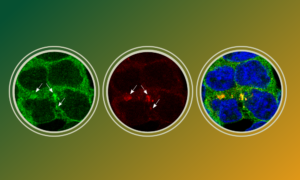
The cellular superhero that protects us against RNA viruses
Science & Technology Scientists have discovered how the antiviral protein TRIM25 finds and binds viral RNA to activate an innate immune response.
2024
science-technology

Science & Technology Scientists have discovered how the antiviral protein TRIM25 finds and binds viral RNA to activate an innate immune response.
2024
science-technology

EMBL-EBI and colleagues from other 11 institutes commit to pathogen data sharing project.
2024
announcements

EMBL Announcements EMBL and partners announce ‘Amplifying Funds in Infection Biology’ to foster interdisciplinary and collaborative research in infection biology.
2024
embl-announcements

The SARS-CoV-2 Data Hubs are a set of tools coupled with infrastructure that support four components: the submission, analysis, presentation and visualisation of SARS-CoV-2 raw read data, and its resulting analyses. What makes Data Hubs attractive is a unique set of features: A new publication in…
2024
updates-from-data-resources

Lab MattersPeople & Perspectives The first EMBL-UNESCO infection biology research fellows share observations after residencies with EMBL researchers.
2024
lab-matterspeople-perspectivesperspectives
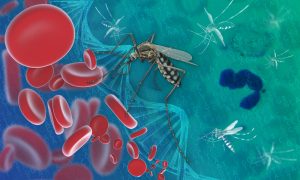
Science & Technology Plasmodium falciparum, a malaria parasite, uses gene conversion to produce genetic diversity in two surface protein genes targeted by the human immune system.
2024
announcementssciencescience-technology
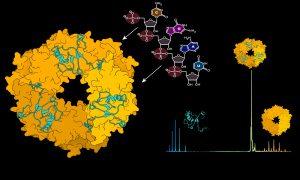
Science & Technology The Kosinski Group at EMBL Hamburg collaborated with other groups in Hamburg to reveal critical steps in Lassa virus ribonucleoparticle assembly and recruitment, and the crucial role played by RNA in in the Lassa virus life cycle.
2023
sciencescience-technology

EMBL Announcements Jan Kosinski, Julia Mahamid, and Georg Zeller have received grants to enable ambitious projects aimed at mapping the cellular protein synthesis machinery in context and understanding complex host-microbiome interactions, respectively.
2023
embl-announcementsscience
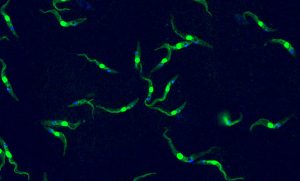
Lab MattersScience & Technology This single-celled organism the size of a dust particle is capable of causing deadly tropical diseases in both humans and livestock –Trypanosoma brucei, in an image by Luciano Dolce from EMBL.
2023
lab-matterspicture-of-the-weekscience-technology
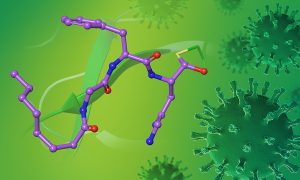
Science & Technology A collaboration between EMBL Grenoble and EBRIS scientists led to the characterisation of a new compound with promising activity against SARS-CoV-2 variants.
2023
sciencescience-technology

Science & Technology Enabling researchers worldwide to share and analyse pathogen data generated across the world
2023
sciencescience-technologytechnology-and-innovation

ConnectionsLab Matters EMBL’s French site was highlighted in a short film presenting its expertise in structural biology research and services.
2023
connectionslab-matters

The first cohort study linking data across categories was recently added on the Pathogens Portal Cohort Browser and is also accessible from the BioSamples browser. This pilot study comes from Erasmus Medical Centre through the ReCoDID project, one of the COVID-19 Data Platform supporting…
2022
updates-from-data-resources
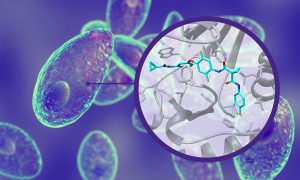
Science & Technology Recent studies supported by EMBL Grenoble’s expertise in structural biology research and scientific services have identified Altiratinib as a potential drug to stop toxoplasmosis infection and opened up treatment options against malaria.
2022
sciencescience-technology
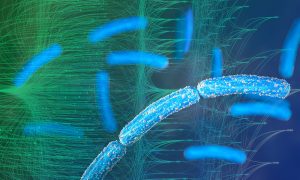
Science & Technology Machine learning has helped researchers uncover new insights into how bacteria infect host cells.
2022
research-highlightssciencescience-technology

Lab MattersPeople & Perspectives Jan Kosinski, Group Leader at EMBL Hamburg and one of the co-chairs of the Infection Biology theme in EMBL’s new programme, chats about how this theme will support his work and help establish new collaborations.
2022
lab-matterspeople-perspectives

Lab MattersPeople & Perspectives Pascale Cossart, one of the world’s foremost authorities on the biology of Listeria, brings four decades of expertise in intracellular bacterial parasitism to EMBL as a visiting scientist.
2022
lab-matterspeople-perspectives

Lab MattersPeople & Perspectives John Lees joins EMBL-EBI as a Group Leader in Pathogen informatics and modelling.
2022
lab-matterspeople-perspectives

Science & Technology Zamin Iqbal and his team are working with researchers all over the globe to help put a stop to Tuberculosis
2022
perspectivessciencescience-technology

Lab Matters EMBL hosted a futuristic infection biology conference, but it offered even more: an opportunity for postdocs to share their work and network towards future research homes.
2022
eventslab-matters

ConnectionsLab Matters The memorandum of understanding (MoU) signed between EMBL and the Institute for Advanced Biosciences (IAB) a year ago has already catalysed new grants for joint research projects related to cancer and infection biology, thereby deepening collaborative activities.
2021
connectionslab-matters
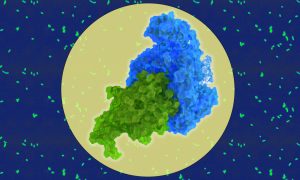
Science & Technology Using cryo-EM and structural biology techniques, EMBL researchers have shown how two proteins of Legionella pneumophila interact. This finding sheds light on a mechanism critical to the infection process and could lead to the development of new drugs to treat pneumonia.
2021
sciencescience-technology
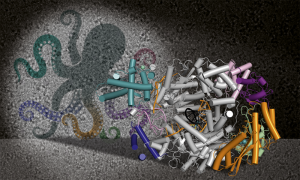
Science & Technology EMBL structural biology is part of an international collaboration addressing zoonotic disease caused by Lassa virus.
2021
sciencescience-technology
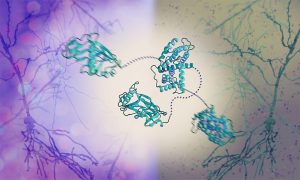
Science & Technology The Graham and Crump groups at the University of Cambridge and the Svergun Group at EMBL Hamburg have discovered a mechanism by which the herpes simplex virus takes control of the molecular machinery of human cells. Their work reveals how a dedicated viral protein hijacks key host proteins, forcing…
2021
sciencescience-technology

Science & Technology EMBL will host a conference to look at the state of the pandemic, lessons learned, and ways to improve pandemic preparedness. Here’s a sneak peek into what promises to be another interesting and informative EMBL conference.
2021
eventsscience-technology

ConnectionsLab Matters EMBL and Helmholtz Association have signed a memorandum of understanding. The expanded collaboration of both institutions will focus on research related to health.
2021
connectionslab-matters
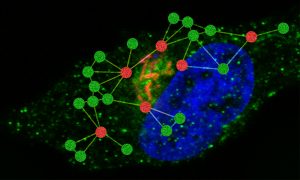
Science & Technology Research in the Typas group uncovers new details of the strategies Salmonella uses to survive in infected cells.
2021
sciencescience-technology
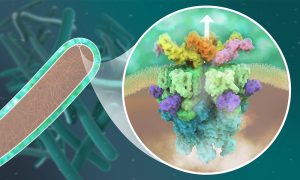
Science & Technology EMBL Hamburg’s Wilmanns and Kosinski groups have determined the detailed structure of a bacterial protein complex critical for tuberculosis infection.
2021
sciencescience-technology

ConnectionsLab Matters EMBL and the Swedish Science for Life Laboratory sign agreement to advance science together.
2021
connectionslab-matters
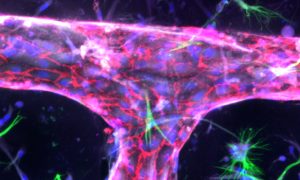
Science & Technology The Bernabeu Group aims to increase our knowledge of cerebral malaria, using in vitro engineered networks of human blood vessels and brain cells.
2021
picture-of-the-weekscience-technology
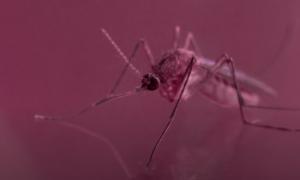
Science & Technology EMBL scientists support research on malaria by providing freely available data resources and using innovative experimental approaches. Our Course and Conference Office facilitates the exchange of knowledge in the field by hosting the annual BioMalPar conference.
2021
sciencescience-technology
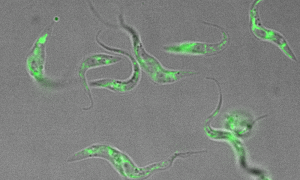
Science & Technology Members of the EMBL community are working to improve our understanding of the parasites that cause malaria and sleeping sickness
2020
sciencescience-technology
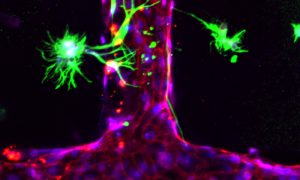
Science & Technology To help understand cerebral malaria the Bernabeu group has created in vitro engineered networks of human blood vessels.
2020
picture-of-the-weekscience-technology
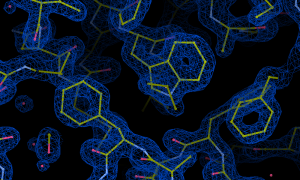
Science & Technology A group of scientists led by EMBL Hamburg’s Christian Löw provide insights into the molecular structure of proteins involved in the gliding movements through which the parasites causing malaria and toxoplasmosis invade human cells.
2020
sciencescience-technology

Lab Matters European collaboration receives funding to explore risks and impact of future infectious disease outbreaks.
2020
lab-matters

Science & Technology The virtual EMBL Conference ‘SARS-CoV-2: Towards a New Era in Infection Research’ explored the importance of fundamental research, collaboration, and data science in containing the SARS-CoV-2 pandemic, and discussed opportunities to improve our response to pandemics in the future.
2020
eventsscience-technology
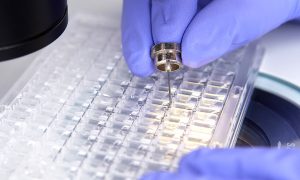
Science & Technology While global research on coronaviruses has shed light on the function of many SARS-CoV-2 proteins, the role of some crucial components remains unknown. Researchers at EMBL Grenoble will use a range of structural biology methods to try to solve some of the puzzles of the molecular mechanics of…
2020
sciencescience-technology

EMBL Announcements The emergence of previously unknown pathogens, such as the novel coronavirus SARS-CoV-2, raises many questions. To explore these questions in an international scientific forum, EMBL will host the virtual conference ‘SARS-CoV-2: Towards a New Era in Infection Research’ on 3 July. Invited…
2020
embl-announcementsevents

Connections EMBL and the European Synchrotron Radiation Facility (ESRF) restart the activities of the Joint Structural Biology Group in Grenoble to support coronavirus-related projects. A new initiative will allow users to be granted access to the High-Throughput Crystallisation (HTX) lab at EMBL and to a…
2020
connectionsscience
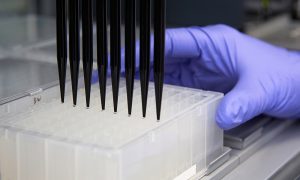
Science & Technology By re-opening the High-Throughput Crystallisation (HTX) lab at EMBL Grenoble, EMBL is supporting structural biology projects to respond to the health threats posed by coronaviruses.
2020
sciencescience-technology

Science & Technology The Marquez Team has restarted operations at the High-Throughput Crystallisation (HTX) lab at EMBL Grenoble. The team has developed a fully automated protein-to-structure pipeline, which can be operated remotely and provides virtual access to the facilities.
2020
sciencescience-technology
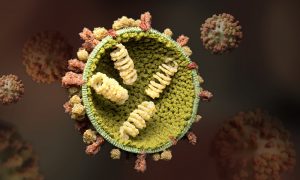
Science & Technology The infectious disease commonly known as flu is caused by the influenza virus. It spreads around the world in seasonal outbreaks, causing millions of infections and hundreds of thousands of deaths each year. Stephen Cusack, Head of EMBL Grenoble, has been studying different aspects of the influenza…
2020
sciencescience-technology

Science & Technology Scientists at EMBL Hamburg and Karolinska Institutet Stockholm aim to find synthetic antibodies – known as nanobodies – that bind a surface protein of the novel SARS-CoV-2 coronavirus. Nanobodies could prevent the virus from entering human cells and causing COVID-19.
2020
sciencescience-technology
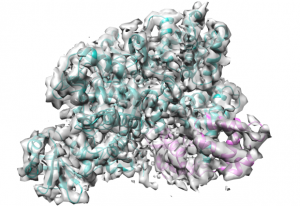
Science & Technology SidJ enforces a unique modification on human proteins and helps legionella grow.
2019
sciencescience-technology
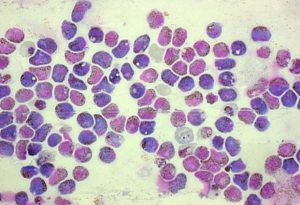
Science & Technology Insights into the reproduction of Plasmodium parasites in mosquitoes reveal rapid and broad activity
2017
sciencescience-technology
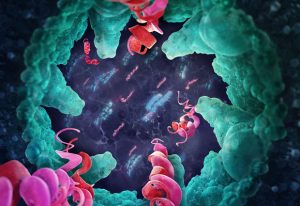
Science & Technology EMBL scientists add crucial knowledge to understanding of the bacterium that causes tuberculosis
2017
sciencescience-technology

Science & Technology Reconstructing T-cell development in high resolution
2017
sciencescience-technology
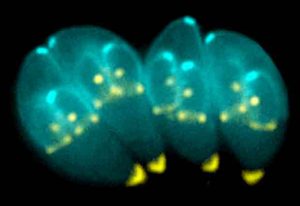
Science & Technology Parasite’s method of rewiring our immune response leads to novel tool for drug tests
2016
sciencescience-technology
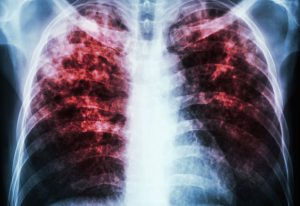
Science & Technology How an EMBL team is making and sharing tools to explore tuberculosis protein structures
2016
sciencescience-technology
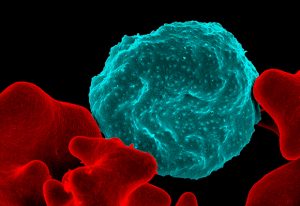
Science & Technology First detailed atlas of start points for genes expression in malaria-causing parasite
2016
sciencescience-technology
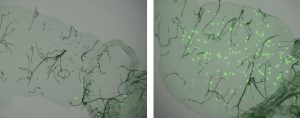
Science & Technology For many years, the mosquitoes that transmit malaria to humans were seen as public enemies, and campaigns to eradicate the disease focused on eliminating the mosquitoes. But, as a study published today in Science shows, the mosquitoes can also be our allies in the fight against this common foe,…
2009
sciencescience-technology
Connections Today the network of excellence for Biology and Pathology of the Malaria Parasite (BioMalPar), will bring together the world’s elite in the field of Malaria research at the European Molecular Biology Laboratory (EMBL) in Heidelberg. At the second annual BioMalPar conference, organised jointly…
2006
connectionsevents
Science & Technology Researchers at the International Centre for Genetic Engineering and Biotechnology (ICGEB) in India and a unit of the European Molecular Biology Laboratory (EMBL) in France have made a key discovery about a molecule that helps the malaria parasite infect human cells. India is one of the countries…
2005
sciencescience-technology
No matching posts found
Looking for past print editions of EMBLetc.? Browse our archive, going back 20 years.
EMBLetc. archive